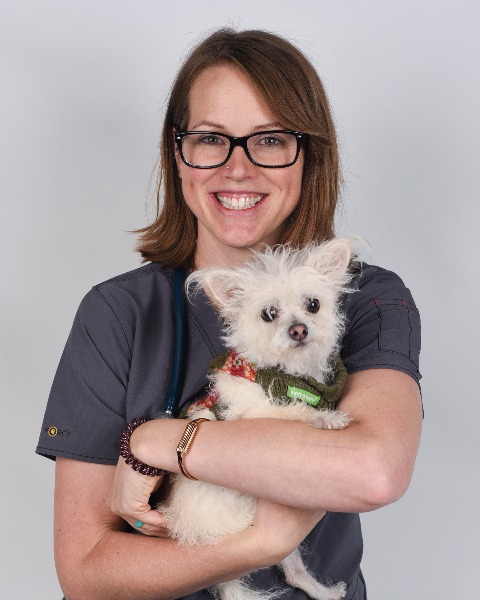Small Animal Internal Medicine
In Person Only
OT01 - Do Owners Know Best? Clinical & Laboratory Findings in Reportedly Healthy Geriatric Cats
Thursday, June 19, 2025
3:45 PM - 4:00 PM ET
Location: KICC M111
CE: 0.25 Medical

Amy Nichelason, DVM, DABVP (Canine and Feline practice)
Clinical Assistant Professor
University of Wisconsin-Madison School of Veterinary Medicine
Madison, Wisconsin, United States
Research Abstract - Oral Presenter(s)
Abstract:
Background: Owners do not take their cats to the veterinarian as frequently as recommended, citing concerns including cost, stress to their cat, or a perception of health.
Objectives: To evaluate clinical and laboratory findings in healthy geriatric cats (>12 years of age). Animals: 131 geriatric cats reported healthy by owners were enrolled between 2022 and 2024. Cats with known neoplasia, infectious or neurologic disease were excluded. Of those, 61 cats had more comprehensive examinations and owners completed surveys about their cats’ habits.
Methods: All cats had a complete blood count, serum biochemistry, T4, blood pressure, and urinalysis performed. Descriptive analyses and comparisons were performed between clinical and laboratory findings and owner-reported questionnaires.
Results: 75% (46/61) of cats had orthopedic changes on exam, despite 73% of clients (39/53) reporting no orthopedic limitations at home. 24% (14/58) of cats had a newly diagnosed arrhythmia or murmur. 69% (37/39) of cats had dental scoring ≥ 3/6, consistent with moderate unstaged periodontal disease and 34% (21/61) had at least one resorptive lesion. Despite only 24.2% (29/120) of owners reporting historic chronic kidney disease and no owners reporting changed thirst or urination, 75% (73/97) of cats had urine specific gravity < 1.035, and 58.5% (69/118) exhibited creatinine levels >1.6 mg/dL. Additionally, 44.5% (53/119) of cats were hypertensive, with hypertension being severe (>180 mmHg) in 37 cats.
Conclusions: Our findings demonstrate that apparently healthy geriatric cats may exhibit clinical and laboratory abnormalities warranting intervention. This underscores the importance of routine examinations and laboratory screenings in this population.
Background: Owners do not take their cats to the veterinarian as frequently as recommended, citing concerns including cost, stress to their cat, or a perception of health.
Objectives: To evaluate clinical and laboratory findings in healthy geriatric cats (>12 years of age). Animals: 131 geriatric cats reported healthy by owners were enrolled between 2022 and 2024. Cats with known neoplasia, infectious or neurologic disease were excluded. Of those, 61 cats had more comprehensive examinations and owners completed surveys about their cats’ habits.
Methods: All cats had a complete blood count, serum biochemistry, T4, blood pressure, and urinalysis performed. Descriptive analyses and comparisons were performed between clinical and laboratory findings and owner-reported questionnaires.
Results: 75% (46/61) of cats had orthopedic changes on exam, despite 73% of clients (39/53) reporting no orthopedic limitations at home. 24% (14/58) of cats had a newly diagnosed arrhythmia or murmur. 69% (37/39) of cats had dental scoring ≥ 3/6, consistent with moderate unstaged periodontal disease and 34% (21/61) had at least one resorptive lesion. Despite only 24.2% (29/120) of owners reporting historic chronic kidney disease and no owners reporting changed thirst or urination, 75% (73/97) of cats had urine specific gravity < 1.035, and 58.5% (69/118) exhibited creatinine levels >1.6 mg/dL. Additionally, 44.5% (53/119) of cats were hypertensive, with hypertension being severe (>180 mmHg) in 37 cats.
Conclusions: Our findings demonstrate that apparently healthy geriatric cats may exhibit clinical and laboratory abnormalities warranting intervention. This underscores the importance of routine examinations and laboratory screenings in this population.


